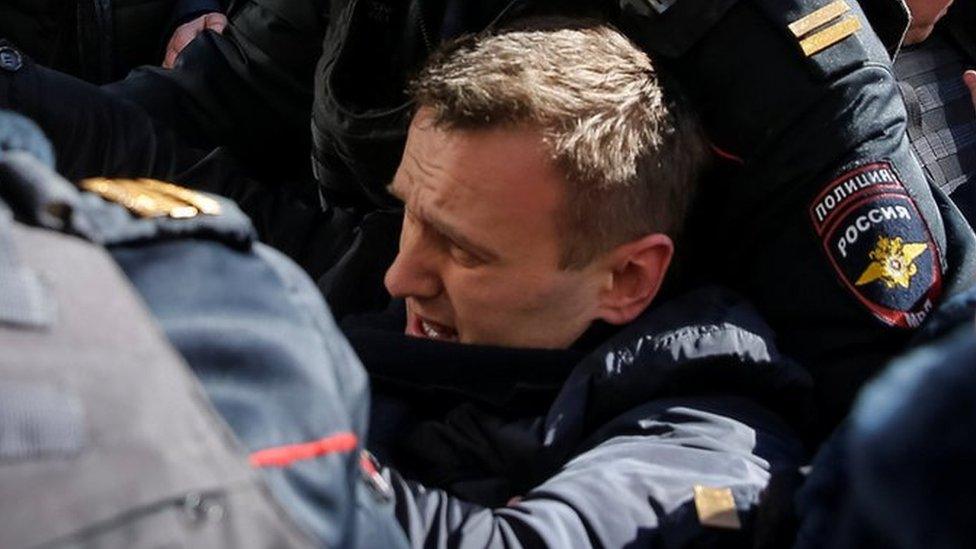Distress as Moscow home demolitions to go ahead
- Published
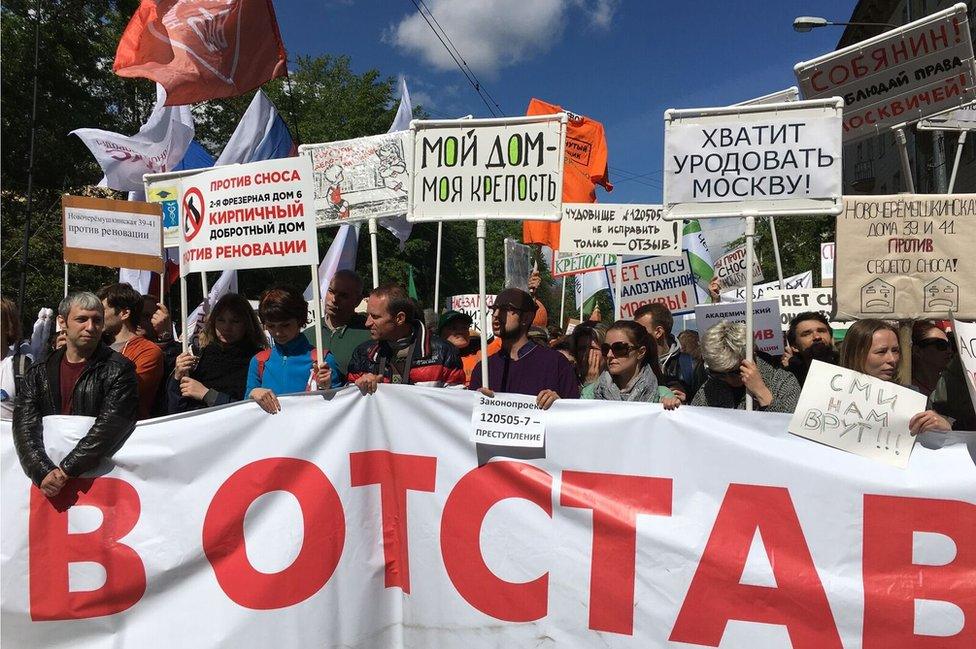
Anti-demolition rally: "My home is my fortress" reads one placard
Oleg and Nastya Kryuchkov bought their flat in Moscow 18 months ago. Now their four-room home is on the list to be flattened, in the biggest demolition project ever seen in Russia's capital.
Mayor Sergei Sobyanin calls it a mass "renovation" of Moscow's older, more dilapidated housing stock.
But the Kryuchkovs are among thousands who have taken to the streets in protest.
"They don't respect the fact that people worked hard and paid taxes. Now they treat us like we are nothing. It's like the 30 years since the Soviet Union means nothing," Nastya says, in her spacious new kitchen.
Nastya and Oleg are software developers. They are members of Russia's middle class that grew, and grew wealthier, in the first years of President Vladimir Putin's rule. Now they face forced rehousing and they are angry.
"The right to property is what our modern society stands on," Oleg explains. "If they don't respect that, then it's like 1917!"
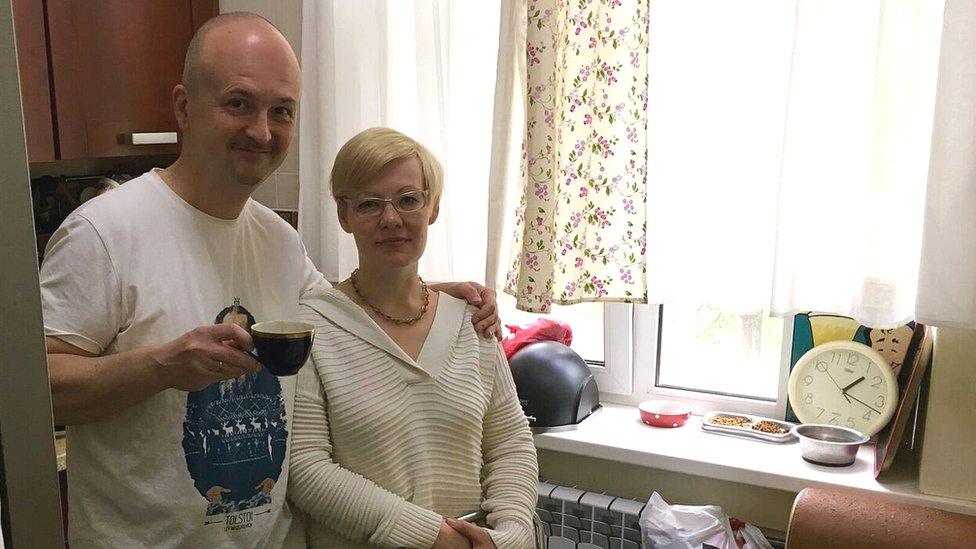
Oleg and Nastya: Taking a stand in the Moscow housing dispute
The more than 4,500 apartment blocks slated for destruction were built under Nikita Khrushchev in the communist 1950s and 60s.
Mostly five-storeys high, they were designed to be functional rather than fashionable.
The Khrushchevki, as they were known, allowed millions of Soviet citizens to escape communal flats, for a space of their own.
But speed, not durability, was the priority then, and many flats in the first wave were low quality. The city government argues they need replacing.
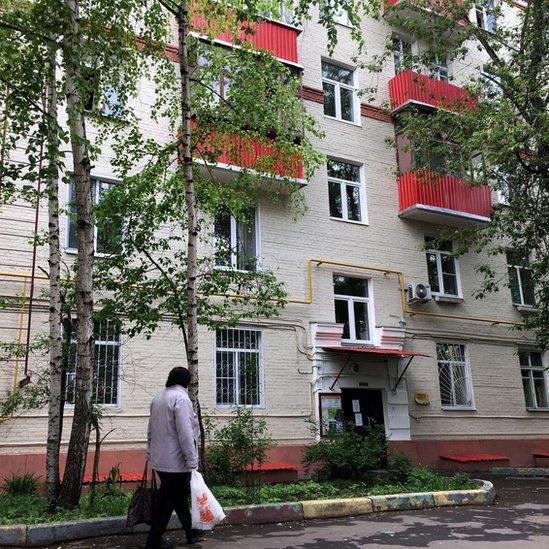
The Kryuchkovs live here - in a block of flats slated for demolition
Relocation fears
"If we don't do anything, then in the next 15 to 20 years they will become dangerous," housing department official Sergei Levkin told the BBC.
"You can't demolish it all, build new housing and move people overnight. It takes time. So we need to start now."
The mayor's office says its mass rehousing plan emerged from Muscovites' own demands for improvements.
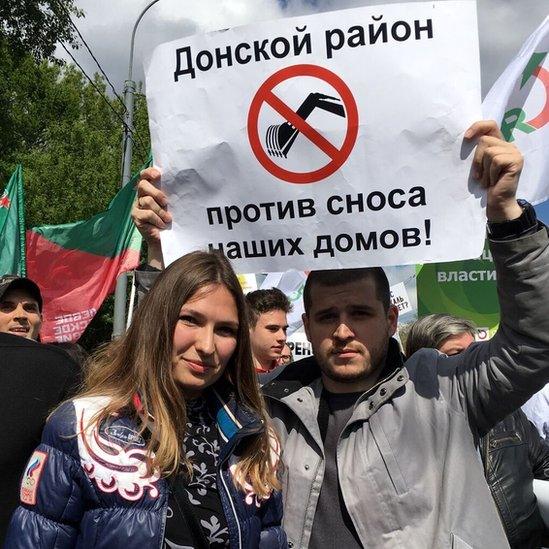
The banner reads: "Donskoi district against demolition of our homes!"
But the law to regulate the process sparked outrage in its first draft. Homeowners had no say over their relocation and no right to appeal. Many feared they would be sent to remote tower blocks - anthills, in anonymous suburbs.
Oleg and Nastya say their own house is structurally sound. So last week, they joined their first ever protest.
Some 5,000 people took to the streets with placards labelling the mayor's plan "Deportation, not Renovation!" It was the second mass rally on the renovation scheme in a fortnight.
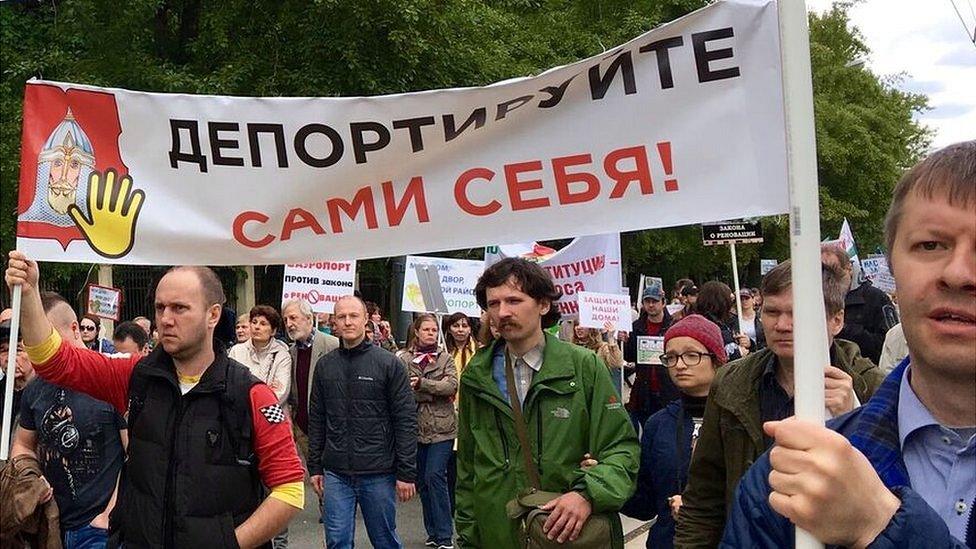
And these protesters tell the authorities: "Deport yourselves!"
'Dangerous precedent'
"I'm just feeling scared and want to protect the apartment I paid for with the money I earned," Olga said as she marched. A professional interpreter, she had steered clear of politics before now.
"I'm angry they are claiming my right to private property. I don't think it is right to create this dangerous precedent," a younger protester called Andrei chipped in, amid chants against both the mayor and President Putin.
Allowing people to privatise their homes for free was one of the most popular reforms in Russia when communism collapsed. Today, people hold the right to property dear.
The mayor's office insists it is driven by concern over living conditions. But protesters suspect developers want access to prime, central Moscow plots and to offload flats they cannot sell in the suburbs.
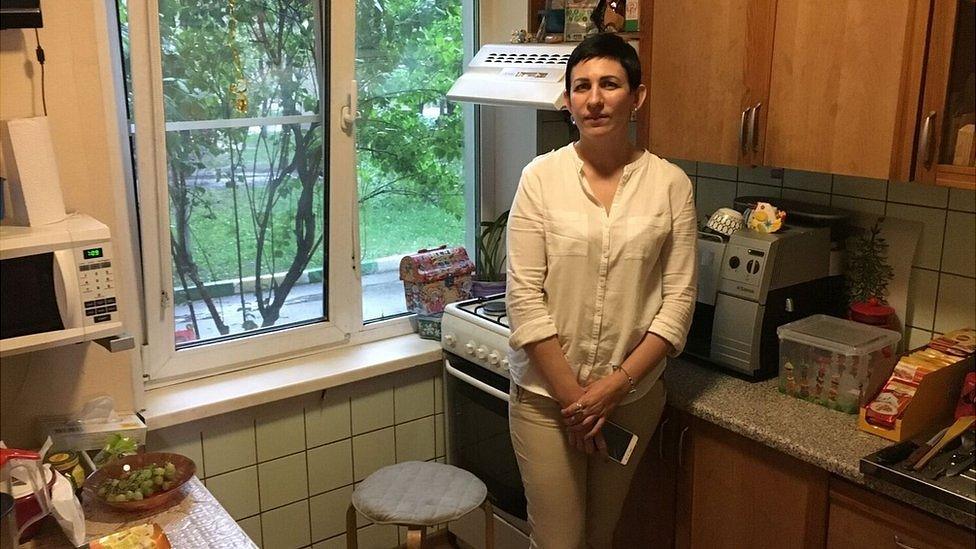
Maria wants to be rehoused - but her block is not on the list to be demolished
"I don't know where to start," Maria Aslamazyan admits, in the small apartment she shares in northern Moscow with her mother and two children.
The family have suffered burst pipes, faulty electrics and a foul smell over the years and the whole building seems to be subsiding.
"We've been asking for it to be declared unfit for ages," Maria says, but her block is not on the list for destruction.
"It's in a good spot but the metro runs underneath and you can't build anything big here," she explains. "It's not profitable, so I think developers aren't interested."
Government rethink
If the housing scheme was intended as a sweetener ahead of next year's elections for mayor and president, it seems to have backfired.
Residents' meetings have been packed and hot-tempered. There were more angry scenes this week when critics were denied access to a public hearing in parliament.
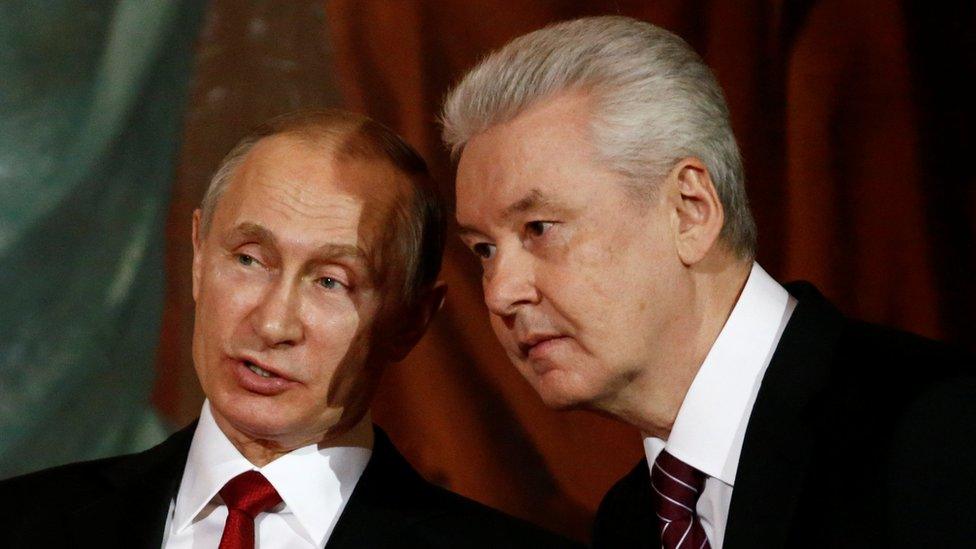
The scale of public anger is a challenge for President Putin (L) and Mayor Sobyanin
Confronted with protests and petitions, the city government has scaled back its plans. It has also ruled that two-thirds of residents must agree to be rehoused, for a house to be demolished.
The federal law that will get its second reading in parliament this week now says residents must be rehoused in their own district.
But the passions this issue has awakened are not fading fast.
"This renovation programme has been a wake-up call to civil society in Moscow," argues political scientist Ekaterina Schulmann.
"If you systematically monopolise the media, crush NGOs and control elections you will be unaware of what people need," she says. "They evidently wanted to please the voters, but now they have angered them."
Oleg Kryuchkov insists that his own family will keep up the pressure to scrap the scheme.
"Even if I have just one chance to change things, I have to use it."
- Published25 March 2024

- Published14 May 2017
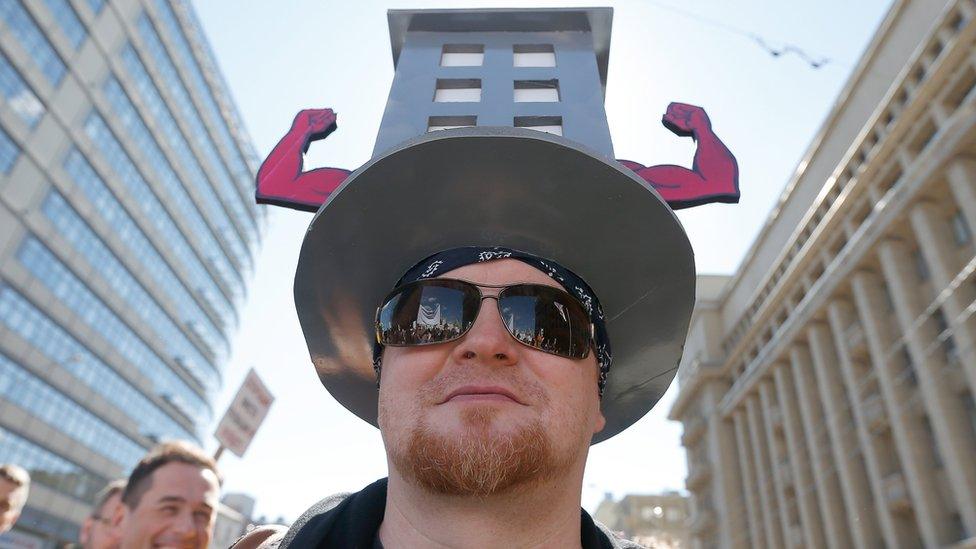
- Published27 March 2017
